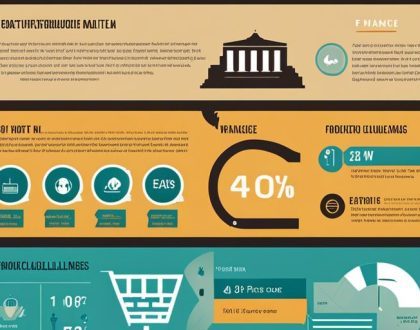Malta’s Business Framework: Tax, Finance

It’s imperative to understand #Malta’s business framework, encompassing #tax, #finance, and regulation for entrepreneurs and #business owners looking to establish a presence in this thriving European country. With favorable tax incentives, a robust financial sector, and progressive regulatory environment, Malta provides a solid foundation for businesses to flourish. This blog post examines into the key aspects of Malta’s business framework, shedding light on the opportunities and advantages it offers to global businesses.
Overview of Malta's Business Environment
Economic Landscape
To understand Malta’s business environment, it is imperative to look at its economic landscape. Malta boasts a stable and open economy with a strong focus on international trade and service industries.
Key Sectors and Industries
The key sectors and industries in Malta include tourism, financial services, iGaming, manufacturing, and technology. These sectors play a significant role in driving Malta’s economic growth and providing diverse opportunities for investment and business development.
It is crucial for businesses looking to establish themselves in Malta to tap into these key sectors and industries, taking advantage of the business-friendly policies and strategic location of the country within the European Union.
Taxation in Malta
Corporate Tax Structure
Assuming an effective corporate tax rate of 35%, Malta operates a full imputation system offering tax refunds to shareholders. This makes it an attractive destination for businesses looking to benefit from a competitive tax regime within the EU.
Incentives for Foreign Investors
With a wide range of incentives such as tax credits, refunds, and participation exemptions, Malta aims to attract foreign investors seeking to establish a presence in the country. These incentives are designed to promote investment and stimulate economic growth in key sectors.
Another key incentive for foreign investors in Malta is the non-domiciled status, which offers significant tax benefits for individuals who choose to reside in the country.
VAT and Other Indirect Taxes
Other than the standard VAT rate of 18%, Malta imposes reduced rates on specific goods and services, such as food, medicine, and education. Additionally, certain supplies qualify for VAT exemptions, providing further flexibility for businesses operating in the country.
Taxation in Malta presents a favorable environment for businesses and investors, with a competitive corporate tax structure, attractive incentives, and a well-established VAT system that supports economic growth and development.
Financial Services and Support
Banking and Finance
Many international banks and financial institutions have a presence in Malta, providing a wide range of banking and financial services to businesses. The country’s strong regulatory framework and stable economic environment make it an attractive destination for financial investments.
Support for Start-ups and SMEs
The Maltese government offers various incentives and support programs to help start-ups and small to medium-sized enterprises (SMEs) thrive. These include grants, tax credits, and mentoring programs to assist in business growth and innovation.
Startups and SMEs in Malta also benefit from access to co-working spaces, networking events, and incubators that foster a collaborative and supportive entrepreneurial ecosystem. Additionally, the Malta Enterprise agency provides tailored support and guidance to businesses at every stage of their development.
Regulatory Framework
Legal Compliance and Governance
All businesses operating in Malta must adhere to the legal compliance and governance regulations set by the Maltese government. This includes company registration, tax compliance, and adherence to laws related to financial reporting and transparency.
Employment and Labor Laws
Legal experts and human resources professionals in Malta must have a good understanding of the country’s employment and labor laws. These regulations cover areas such as working hours, minimum wages, leave entitlements, and employee rights and protections.
Plus, employers in Malta must also comply with laws related to health and safety in the workplace, discrimination, and termination procedures. Understanding and following these regulations are crucial for a business to operate smoothly and avoid any legal issues.
Summing up
Presently, Malta offers a competitive business framework when it comes to tax, finance, and regulation. With its attractive tax incentives, robust financial services, and supportive regulatory environment, Malta continues to be a desirable location for businesses looking to establish and grow their operations. It is crucial for businesses to navigate the framework effectively to maximize their potential and ensure compliance with local laws and regulations.
FAQs
What are the key sectors driving Malta’s economic growth?
Tourism, financial services, iGaming, manufacturing, and technology are pivotal sectors.
What tax incentives does Malta offer to businesses?
Malta provides tax credits, refunds, and participation exemptions to attract foreign investors.
How does Malta’s VAT system benefit businesses?
Malta offers reduced VAT rates on essential goods and services, fostering economic flexibility.
What support does Malta offer to startups and SMEs?
Malta provides grants, tax credits, and mentoring programs to nurture small businesses.
What legal regulations must businesses adhere to in Malta?
Compliance includes company registration, tax laws, and employment regulations.
Recommended Posts

Historical Tapestry of Malta
July 5, 2024

Hacksaw Gaming & Spelet.lv Elevate Online Gaming
July 5, 2024

Starting a Finance Business in Malta
July 5, 2024



